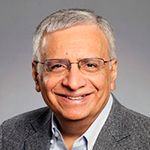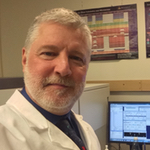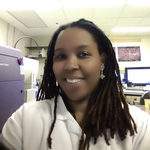About
The Emory University School of Medicine Flow Cytometry Core (EFCC) provides state-of-the-art high-speed sorting, sample analysis and analyzer training facilities. Mission priority #1 is to provide the highest customer satisfaction to our clients. This Flow Cytometry Core Facility provides quantitative flow cytometric analyses on samples from a wide variety of biological matrices, e.g. blood, bone marrow, spleen, serum, plasma, solid tissues, cell extracts, etc., to support both clinical and basic research efforts on the campus and the surrounding area. These analyses will provide insight on cell function and precursors whose abundance can be monitored as biomarkers to predict and follow progression of a wide range of diseases, such as H1N1, yellow fever, dengue, neurodegenerative diseases, stem cell studies, etc. To effectively implement our technologies, we provide consultations, expert training, and support for all our systems.
Along with providing access to equipment, another goal of EFCC is to serve as a facilitator for the research community at Emory. We seek to unite diverse bio-research interests, allowing investigators to share ideas, expertise, and instrumentation. Developing new flow cytometric techniques and acquiring new cutting-edge equipment are central to our mission to serve the Emory community.
The members of EFCC have a wide breadth of interests and experience in basic cell biology, vaccine development, genetics, cancer biology, nanotechnology, immunology, pharmacology, and microscopy technique development.
Please contact us at EFCC@emory.edu about your research needs or interests.
Core Structure:
See Core Operations (PDF) and Facility Advisory Committee (PDF) organization charts.
Core Leadership
Rafi Ahmed
Scientific Director
Rafi Ahmed is the Director of the Emory University Flow Cytometry Core Facility (EFCC). He is a member of the National Academy of Science and a world-renowned immunologist whose work during the past decade has been highly influential in shaping our current understanding of memory T cell differentiation and anti-viral T and B cell immunity.

Technical Director
Robert Karaffa is the Technical Director of EFCC. He received his Bachelor of Science degree in Microbiology and Bachelor of Arts degree in History from Indiana University. His career at Emory University spans 24 years +, serving as Technical Director of EFCC since 2001.

Core Team
Kametha Fife, M.T.
Flow Cytometry Technologist Sr

Sommer Durham, MS, MLS (ASCP)CM SCYM
Flow Cytometry Technologist, Supv EFCC (HSRBII Location)
Sommer Durham is a highly motivated team member with 14+ years of technical expertise & research/clinical experience in Flow Cytometry & Cell Sorting. She is a graduate of the University of Georgia (Biochemistry & Molecular Biology, BS), Georgia College & State University (Biology, MS), and completed the George Washington University Medical Laboratory Scientist Program.
